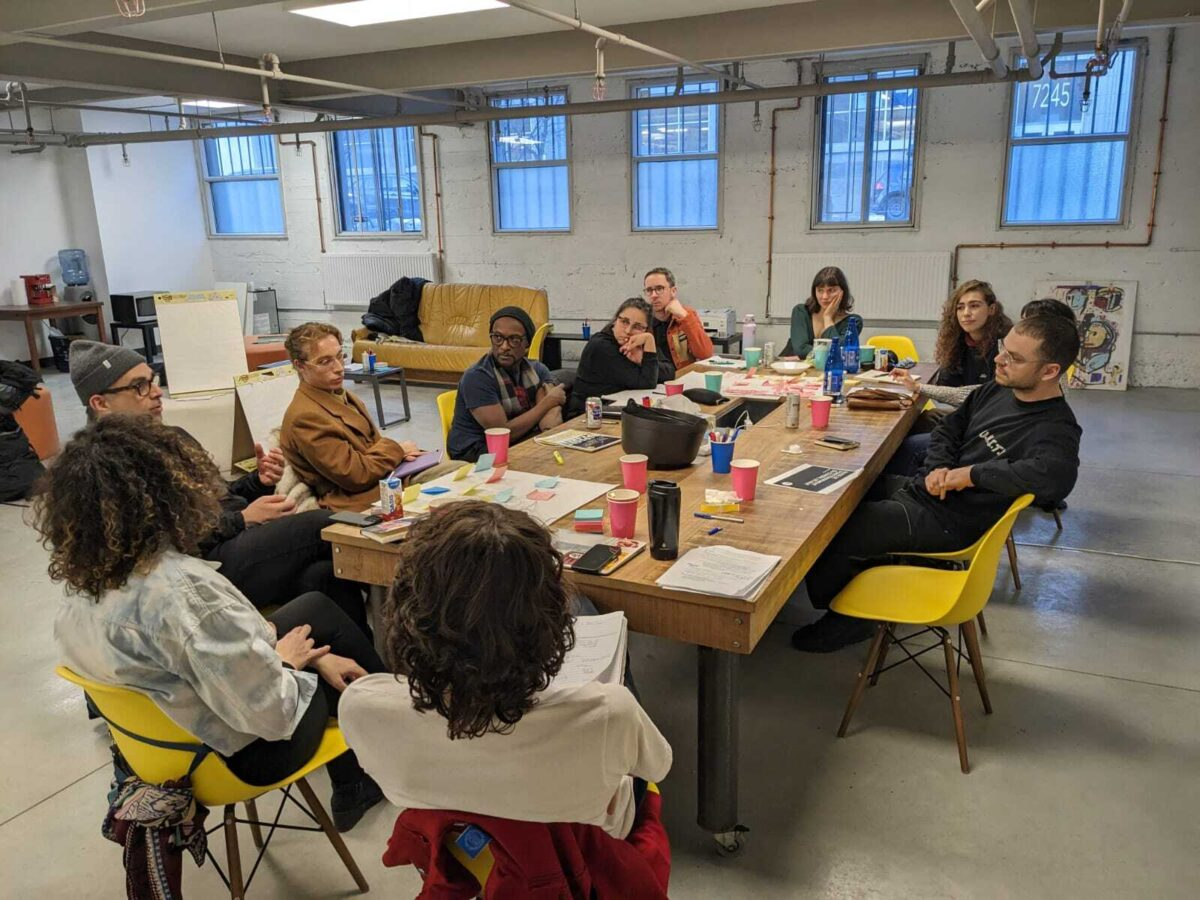Advisory Report of MTL 24/24's Night Council (2023-24 Cohort)

The 2023 Advisory Report of MTL 24/24’s Night Council is a sociological and ethnographic study of service workers in commercial and cultural establishments with a festive vocation that are open to the public at night, between 9 pm and 6 am.
This research, the results of which will be presented at the Montreal Night Summit in the form of an Advisory Report, is intended to document the career paths and emotional labor experiences of the various workers in the nightlife scene, allowing the Night Council can issue recommendations aimed at supporting and nurturing the cultural nightlife scene.
The form of the Night Council’s Advisory Report is inspired by those produced by the Conseil Jeunesse Montréal and the Conseil des Montréalaises.
Objective
The aim of this study is to provide the cultural nightlife scene with research that sheds light on the career paths and physical, emotional (care) and relational work experiences of service personnel in Montreal nightlife establishments. The main objective of this Advisory Report is to:
Take stock of the situation, the issues, the needs, the opportunities and the players involved, as well as make recommendations concerning the physical, relational and emotional work experiences of service personnel in Montreal’s nightlife establishments.
Context
Night Council meetings have revealed a marked interest in studying the experience of individuals working in Montreal’s nightlife establishments. In order to contribute to knowledge in this field, the Conseil de Nuit wishes to pay particular attention to the emotional and relational work carried out by these professionals towards the clientele frequenting these establishments.
We feel that this is an important subject, because after lengthy discussions within the Night Council, the diverse group of actors from the nightlife scene who make up the group came to the conclusion that the emotional aspect of the work carried out by employees of nightlife establishments in contact with nighttime users occupies a special space.
Indeed, the relationship with customers often goes beyond a simple economic transaction, and service work extends to relational work, interactions and, in particular, a certain affective involvement associated with care work for a night-time clientele in need of socialization. However, emotional work in this kind of context has its limits, and when these are exceeded, the work can be invasive.
Indeed, these night workers may be subjected to harassing comments and/or actions by the clientele, which inevitably brings its own set of issues. It would therefore be pertinent to better understand the reality experienced by these night workers, in order to show the complexity of their work and the issues they face. To make up for this lack of recognition observed by the Night Council, we wish, through this Advisory Report, to develop a better understanding of the reality specific to night workers who are in direct or transactional relationship with nocturnal users.

Preliminary Research Questions
- What forms can night workers’ relational and emotional work take, and what are its limits?
- What positive or negative impacts (lack of appreciation, exhaustion, etc.) do these forms of relational and emotional work have on these workers during and after their shift?
- What strategies are put in place, formally or informally, to manage this relational and emotional work, particularly in the event of harassing behavior on the part of a user?
Key Concepts
The concept of “emotional labor”, proposed by family and work sociologist Arlie R. Hochschild, describes how individuals manage their emotions in order to bring them into line with social expectations. Hochschild, describes how individuals manage their emotions in order to bring them into line with social expectations, in everyday life and particularly in the context of work, which is what interests us here. According to her, emotions and feelings are governed by social conventions and rules, and are therefore “signals” to be interpreted. Hochschild’s analysis of emotions draws on three theoretical currents: the organicist perspective (Darwin), interactionism (Dewey, Gerth, Mills and Goffman) and psychoanalysis (Freud)1. We are also open to your expertise in enriching the conceptual framework of this research, particularly with regard to the concept of care.
1 Hochschild, Arlie Russell et al. 2017. Le Prix Des Sentiments : Au Cœur Du Travail Émotionnel. Paris: La Découverte.

Methodology
The Night Council would like to shed light on the intimate experiences of these workers, for example the ambiguities inherent in this service relationship, their professional ethos, the ways in which they socialize with their clientele, and so on. The research will take a qualitative approach using the methodological tools of sociology and ethnography, such as surveys and semi-directed interviews, to be conducted in French and English. Due to the sensitivity of the subjects to be studied, the research methodology will respect Canada’s ethical framework for research involving humans (TCPS2) (more information on the government website).
Sampling
In the eyes of the Night Council, night-time workers in festive environments and in direct contact with night-time users include various positions and professions: floor managers, bartenders/barmaids, waiters/waitresses, bussboys/bussgirls, hosts/hostesses, coatcheck staff, harm-reduction personnel (such as those working for organizations like GRIP), and security guards. We also aim to foster an inclusive, intersectional approach by addressing the research to a diversity of participants with plural lived realities, whether in terms of age, gender, ethnic origin or membership of an LGBTQI+ community.
The research will seek to mobilize a variety of venues, both in terms of musical styles, opening hours, clienteles (alternative or commercial cultures, for example), but above all geographical distribution (central vs. outlying neighborhoods).
Expected Results
The Advisory Report will support and enrich the reflections and actions of the Night Council, MTL 24/24 and other players in the nightlife scene, by providing an unprecedented scientific perspective on the backgrounds and experiences of nightlife workers.
This Advisory Report will enable the Night Council to gain a better understanding of the issues faced by these workers, so as to formulate recommendations that will support the development of the milieu and encourage future research in this field. The opinion will also shed light on the people who work at night, and thus improve the representation of these professions within society.
The Advisory Committee
The Advisory Committee is a branch of the Night Council open to all councillors. The purpose of this body is to specify the angle from which the chosen theme will be addressed in the annual Advisory Report. In addition, the Advisory Committee’s role is to hire a research agent through a call for tenders outlining the requested research theme. This person carries out and drafts the research required to prepare the opinion. To ensure that the content produced by the research team complies with the Night Council’s guidelines, the writing of the Advisory Report is a collaborative process. Each month, the research team presents deliverables to the Advisory Committee (e.g., the chapter on methodology), so that advisors can read them and make comments.
To learn more about the work and mandate of the Night Council, visit this page.